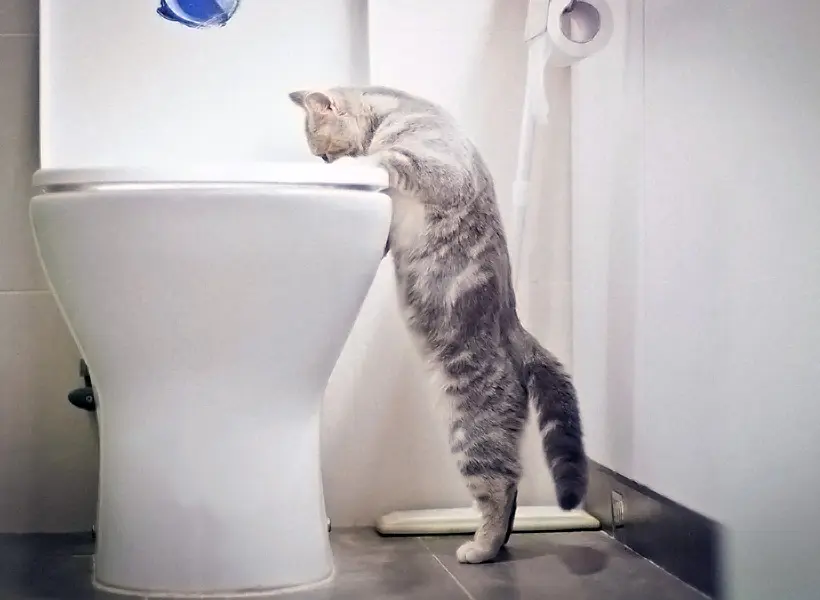Dangers of Flushing Cat Poop Down Your Toilet - Prevent Possible Issues
Dangers of Flushing Cat Poop Down Your Toilet - Prevent Possible Issues
Blog Article
Here in the next paragraph you can locate some outstanding resources on the subject of Can You Flush Cat Poop Down The Toilet?.
:max_bytes(150000):strip_icc()/0S1A1090-49a8e2c66f8e41d6901f2559787a7f24.jpg)
Introduction
As cat proprietors, it's essential to bear in mind just how we dispose of our feline buddies' waste. While it might seem convenient to flush pet cat poop down the toilet, this method can have damaging consequences for both the environment and human health and wellness.
Alternatives to Flushing
Fortunately, there are more secure and a lot more accountable methods to dispose of pet cat poop. Think about the complying with options:
1. Scoop and Dispose in Trash
One of the most typical approach of taking care of feline poop is to scoop it into an eco-friendly bag and throw it in the trash. Make certain to make use of a dedicated clutter inside story and throw away the waste immediately.
2. Use Biodegradable Litter
Choose biodegradable cat litter made from products such as corn or wheat. These clutters are environmentally friendly and can be safely dealt with in the garbage.
3. Hide in the Yard
If you have a yard, think about hiding feline waste in a designated location far from veggie yards and water resources. Make certain to dig deep enough to prevent contamination of groundwater.
4. Set Up a Pet Waste Disposal System
Invest in a pet dog waste disposal system specifically designed for feline waste. These systems utilize enzymes to break down the waste, decreasing odor and environmental influence.
Wellness Risks
In addition to environmental problems, purging cat waste can likewise present health and wellness threats to people. Feline feces might consist of Toxoplasma gondii, a parasite that can trigger toxoplasmosis-- a possibly extreme ailment, particularly for expecting females and individuals with damaged immune systems.
Environmental Impact
Flushing pet cat poop presents hazardous virus and parasites right into the supply of water, positioning a significant risk to water environments. These pollutants can adversely affect aquatic life and concession water high quality.
Conclusion
Responsible pet dog possession expands beyond supplying food and sanctuary-- it likewise involves correct waste monitoring. By avoiding flushing feline poop down the toilet and opting for different disposal techniques, we can decrease our ecological footprint and protect human wellness.
Why Can’t I Flush Cat Poop?
It Spreads a Parasite
Cats are frequently infected with a parasite called toxoplasma gondii. The parasite causes an infection called toxoplasmosis. It is usually harmless to cats. The parasite only uses cat poop as a host for its eggs. Otherwise, the cat’s immune system usually keeps the infection at low enough levels to maintain its own health. But it does not stop the develop of eggs. These eggs are tiny and surprisingly tough. They may survive for a year before they begin to grow. But that’s the problem.
Our wastewater system is not designed to deal with toxoplasmosis eggs. Instead, most eggs will flush from your toilet into sewers and wastewater management plants. After the sewage is treated for many other harmful things in it, it is typically released into local rivers, lakes, or oceans. Here, the toxoplasmosis eggs can find new hosts, including starfish, crabs, otters, and many other wildlife. For many, this is a significant risk to their health. Toxoplasmosis can also end up infecting water sources that are important for agriculture, which means our deer, pigs, and sheep can get infected too.
Is There Risk to Humans?
There can be a risk to human life from flushing cat poop down the toilet. If you do so, the parasites from your cat’s poop can end up in shellfish, game animals, or livestock. If this meat is then served raw or undercooked, the people who eat it can get sick.
In fact, according to the CDC, 40 million people in the United States are infected with toxoplasma gondii. They get it from exposure to infected seafood, or from some kind of cat poop contamination, like drinking from a stream that is contaminated or touching anything that has come into contact with cat poop. That includes just cleaning a cat litter box.
Most people who get infected with these parasites will not develop any symptoms. However, for pregnant women or for those with compromised immune systems, the parasite can cause severe health problems.
How to Handle Cat Poop
The best way to handle cat poop is actually to clean the box more often. The eggs that the parasite sheds will not become active until one to five days after the cat poops. That means that if you clean daily, you’re much less likely to come into direct contact with infectious eggs.
That said, always dispose of cat poop in the garbage and not down the toilet. Wash your hands before and after you clean the litter box, and bring the bag of poop right outside to your garbage bins.
https://trenchlesssolutionsusa.com/why-cant-i-flush-cat-poop/

I'm very focused on How to Dispose of Cat Poop and Litter Without Plastic Bags and I'm hoping you enjoyed reading my blog entry. For those who enjoyed reading our article plz be sure to pass it around. I take joy in reading our article about Don’t flush cat feces down the toilet.
Click Here Report this page